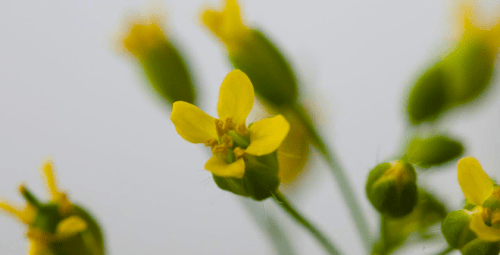Yield10 Bioscience, an agricultural bioscience company, is looking to replicate the success of canola in Canada on camelina.
Today, canola is grown on 20 million acres in Canada and is estimated to generate around US$25 billion for the Canadian economy, according to the Canola Council of Canada.
Camelina (Camelina sativa) was widely cultivated in Europe, Russia, and Central Asia since medieval times for oil and protein, but was replaced by rapeseed cultivation during the 1940s.
For Yield10 Bioscience, camelina has the potential to replicate the development of modern canola from oilseed rape in an accelerated timeline based on modern technologies including genomics,
Beginning in the 1960s, the improvement of canola from rapeseed to the first generations of canola was not completed until 1982 based on improvement of oil for human consumption (low euricic acid content in the oil) and improvement of protein meal (low in glucosinolates) for use in animal feed.
This was followed by the incorporation of herbicide tolerance and hybrid technologies in the 1990s.
Canola
Now Yield10 Bioscience is using its distinct trait gene discovery platform, the «Trait Factory,» to develop improved camelina varieties to produce proprietary products and produce other high-value traits for the agricultural and food industries.
The company is headquartered in Woburn, Massachusetts and has an Oilseeds Center of Excellence in Saskatoon, Saskatchewan, Canada.
Its objectives are to efficiently develop and market a high-value produce business by developing superior camelina varieties for the production of feedstock oils, nutritional oils, and PHA bioplastics, and to license their performance characteristics to leading companies of seeds for sale in the main row crops, including corn, soybeans and canola.
Characteristics
Camelina is an annual oil-bearing plant in the mustard family that is native to Europe and an essential component of Yield10 Bioscience’s trait factory.
It has several excellent agronomic characteristics, including low water and fertilizer input, drought resistance, and a short life cycle, making it suitable as a rotation crop in the northwestern United States and as a relay or cover crop with corn and soybeans in the midwestern United States.
In addition, it produces a relatively bountiful crop of protein-rich seeds that contain oil.
For approximately ten years, Yield10 has been conducting camelina research, identifying and deploying its genetic trait discoveries, evaluating the performance of these new traits in field trials, developing PHA bioplastics in seeds, and securing exclusive rights to oil technology. Omega 3.
We began to prepare for the commercial launch of our business of products based on the current Camelina varieties to supply the oil and protein meal markets.
The company anticipates that this will be followed by the launch of two higher value proprietary products, omega-3 oils (DHA+EPA), which it is developing under a technology development agreement with Rothamsted Research, and bioplastic PHAs.
Thus, the company expects that the sequential launch of these products will allow it to establish the operating base of the commercial products business and increase revenues and margins based on sales of omega-3 oil products, thereby generating sufficient cash flow. to finance the commercialization of PHA bioplastics.
![]()

